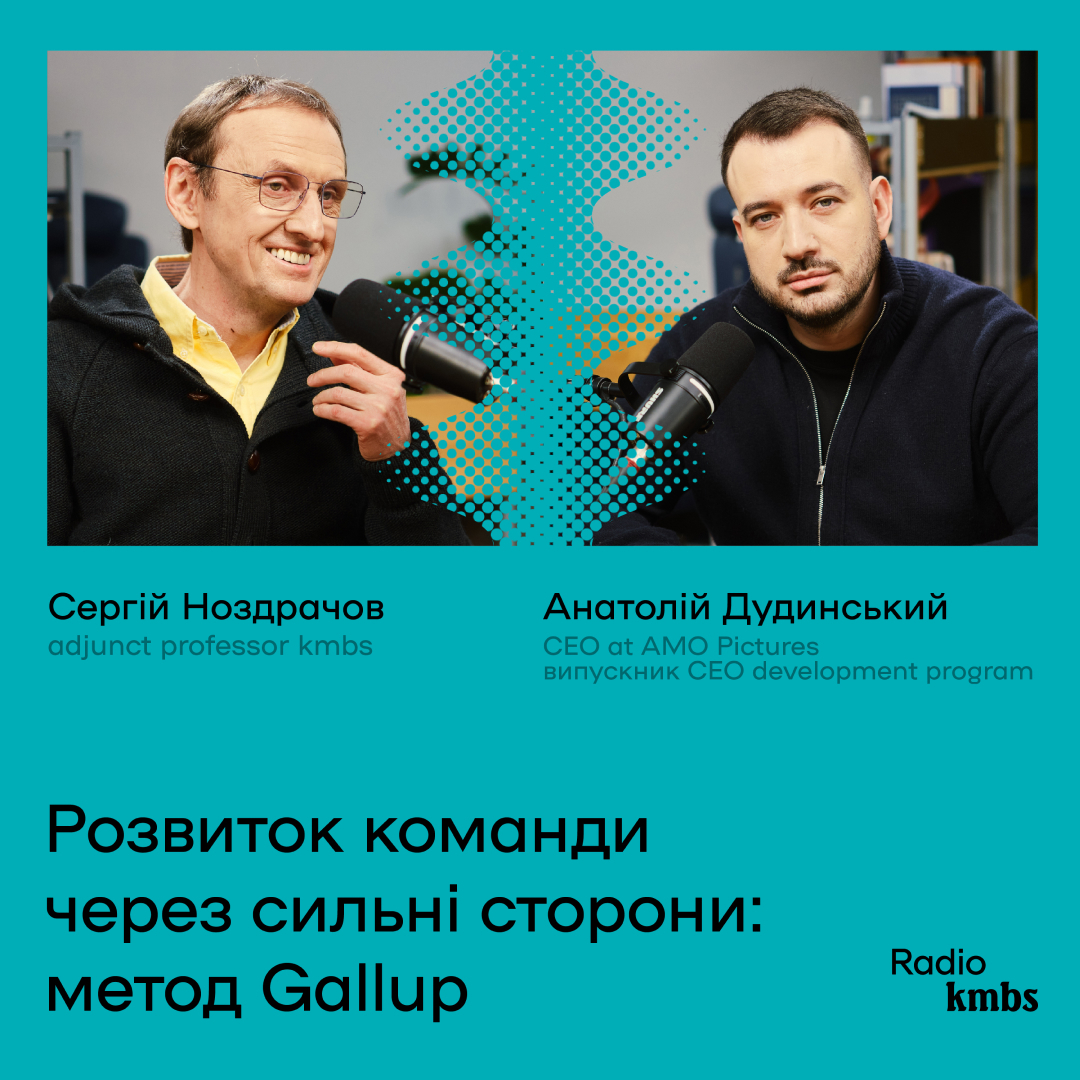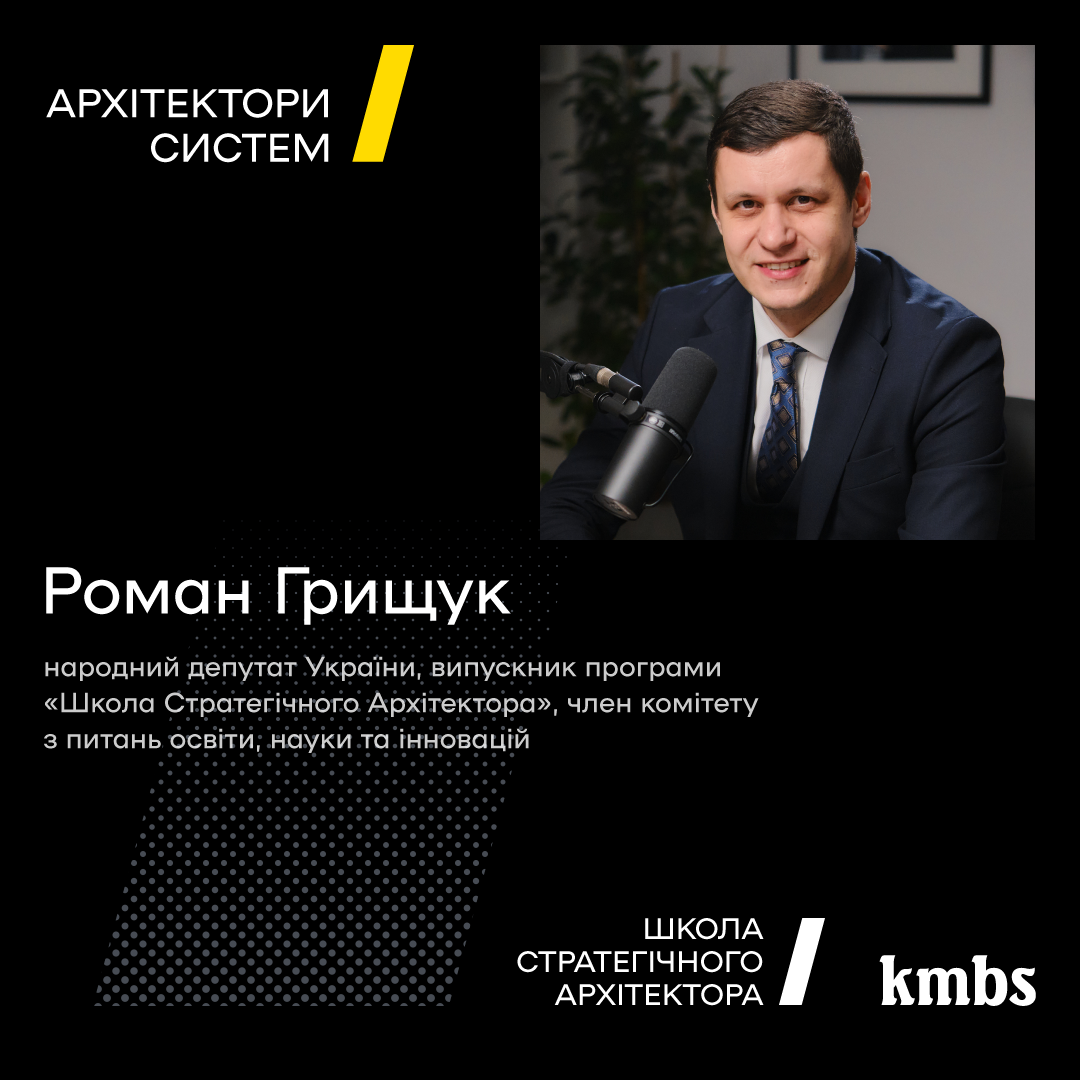Learn first
KMBS latest news in real time

For the latest KMBS events and news, visit KMBS Live at the top right corner of the screen
Open kmbs live 19.12.2024
19.12.2024 486
486 5min
5minЯк ви впроваджуєте зміни у війську? Що вам допомагає?
Великий плюс – є певна культура, яку я люблю. Це серйозний факт, що мотивує. Люди, трансформовані цією культурою, можуть створювати потужну синергію. Ми замотивовані, тому кожен застосовує свій бекграунд до якоїсь справи: медицини, БпЛА, всього, що завгодно. Ідеї запроваджують просто на місці в будь-який спосіб. Ми всі в колаборації завдяки мотивації. Азовська ідеологія об’єднує військові формування, політичні сили, громадські та волонтерські організації. І коли все це взаємодіє із суспільством, тоді виростає екосистема. У цьому ключ до успіху, певно. Відбуваються суспільні та військові процеси, схожі на бізнесові.
Як би ви описали культуру третьої штурмової, і яким чином будується довіра?
Це така змішана культура вікінгів та супервоїнів. Ми жартуємо, що це безумство й відвага.
Ніхто не сумнівається, що штурмовик ― це клієнт.
Всі інші є тими, хто надає цінність штурмовику. Є певна ідеологічна база, компонента від керівництва бригади. Друга частина ― це люди, які беруть участь у небезпечних бойових діях. Ці два фактори утворюють вікінгський приклад. Загалом існують дві касти: політична і штурмова, які впливають на всі інші.
Враховуючи таку культуру і ваше середовище, яким чином вам вдається досягати всіх поставлених цілей?
У нас виникла трішечки “махновщина”. У нашій команді три медики, і ми одразу розподілили зони відповідальності як три менеджери. Працюючи у своїй галузі, кожен став експертом. Це горизонтальна система.
Як ви ухвалюєте рішення, враховуючи те, що на війні це треба робити швидко?
Зазвичай використовуємо ізраїльську систему. Ми сідаємо, просто розмовляємо, сперечаємось, і робота стає більш схожою на воркшоп, а не на нараду. Це дуже відрізняється від російсько-радянського підходу.
Згадуючи про те, хто ваш клієнт, можете пояснити, яку цінність конкретно ви бачите, як вона створюється?
Якщо людині треба йти штурмувати щось, критично важливо, щоб вона знала, що в неї надійний бронежилет, командир, медики, які будуть рятувати. Все має бути надійне і підраховане. Таким чином ми даємо впевненість. Коли вони знають, що в найкращих Збройних силах є все, то воюють якнайкраще. Цінність ― це впевненість.
Можливо, є ще якісь речі, про які ми не поговорили з погляду екосистеми, клієнтів, цінностей, що вам допомагають розв’язати якісь питання, спертися концептуально на щось?
Я і зараз застосовую системне мислення, яке ми вивчали в kmbs. Відбулась певна профдеформація, і я завжди цим користуюся. Сидиш і думаєш: ага, якщо так складені кульки, вони так будуть взаємодіяти, вони до чогось можуть призвести. А якщо їх перетасувати, було б інакше. Проте є проблема ― форс-мажори. Я не знаю бізнесу, в якому стільки форс-мажорів. Усе це поєднується з тим, що є певна таємничість всіх процесів.
Говорячи про складність прогнозування, як вам вдається будувати процеси, якщо ви до кінця не можете зрозуміти, що відбудеться?
По-перше, накопичується досвід. По-друге, всі й так готові, начхати на здоров'я. У когось кров із носа, а він далі працює. У бізнесі ніхто не буде так працювати на межі, а тут народ так робить.
І коли ти не впевнений, то зроби запас. Ну і ще, мабуть, постійна внутрішня готовність до якогось форс-мажору. Завжди готові, завжди треба бігти.
Зважаючи на ваш досвід, який ви накопичили, що ви хотіли б розказати або порадити?
Загальна порада ― це критично мислити, критично підходити. Друга порада ― не боятись, мати своє бачення, наполягати на ньому.










